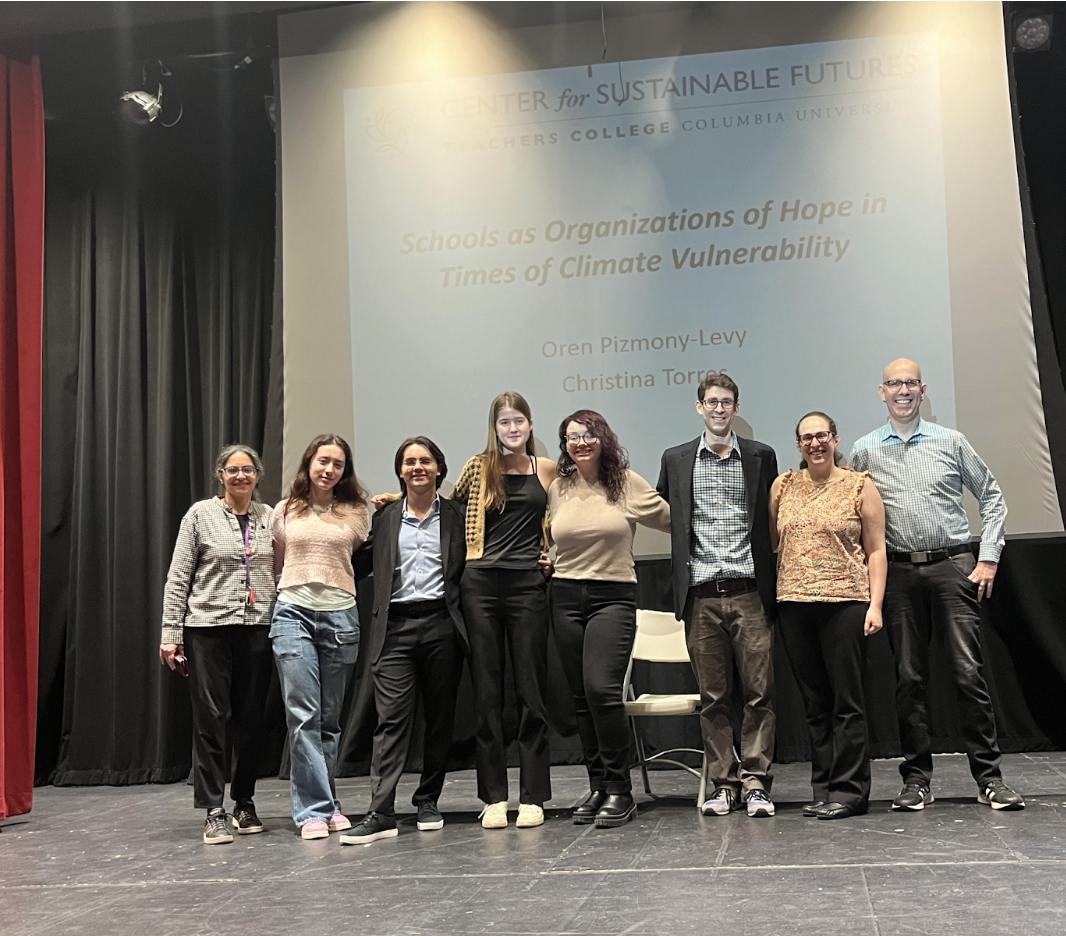Oren Pizmony-Levy and Christina Torres were invited to give a talk during Hunter College High School’s Climate Day on Friday March 17th. Climate Day brought together people working across the spectrum of climate, including climate scientists, activists, and researchers, to provide high school students an understanding of the diversity of people working on climate solutions. The day was split up into 45 minute slots, and the goal of our period was to engage students in the idea that education has a large role to play in climate solutions. We were invited to Climate Day by Ajani Stella, a Hunter College High School junior and climate activist. He is the President and Founder of the nonprofit Kids Fight Climate Change and was a participant in our Youth at the Center program for two years.
In the spirit of the center’s mission to generate knowledge and engage people with ideas, we made the decision while planning this talk to involve students in a larger conversation rather than lecture. We wanted to engage students in our research on climate change education and also use this as an opportunity to learn from the students’ own ideas and experiences.
We started our time with the students projecting the classic Blue Marble image of the Earth on the screen behind us, explaining that this image transformed popular consciousness and brought sustainability to the forefront. We briefly introduced different conceptions of sustainability, including doughnut economics. We then invited students to share their emotions about climate change; these emotions spanned from feelings of anxiety and helplessness to hopeful for their generation to take charge in the effort. Their feelings aligned with previous research done with youth climate activists, where the word “hope” is central in the network they use to describe their own feelings. We shared this research with the students, and concluded by talking about the interactions between climate change and education through research on the subject.
We spent the rest of the time listening to the students’ ideas on the connections between climate change and education. Students brought up the importance of teaching about climate change in all subjects, not just in science classrooms, to provide a comprehensive understanding of the climate crisis to students. They also brought up how the actual infrastructure of the school can be improved, and the ways school administration can support students’ civic engagement. They were particularly interested in research we shared on how heat waves are exacerbating learning loss throughout the world, and we were able to share this work with the students after the presentation.
Our time at Hunter College High School underscores the importance of facilitating conversations with youth on the climate crisis, especially when it concerns their education and institutions they are part of. We have learned so much from youth in these collaborative spaces, and look forward to continue working with young people in the future.
